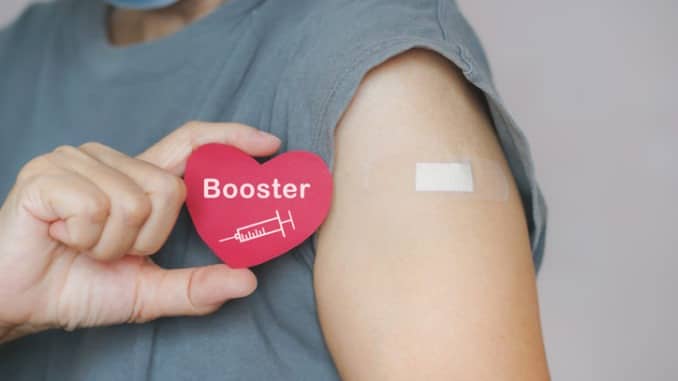
As reported by BBC News, the first 16 and 17-year-olds will be able to book their booster jabs or attend a walk-in vaccination centre this week, NHS England has said
Invitations will initially be sent to the 40,000 teens who had a second vaccine dose at least three months ago. Eventually more than 600,000 people aged 16 and 17 who have had two doses will be eligible for the booster. More than seven in 10 people in this age group in England have had at least one dose – 889,700 in total.
Vaccinations have been offered to this age group since August, but previously the booster jab was only recommended by the experts on the Joint Committee on Vaccination and Immunisation (JCVI) for 16 and 17-year-olds who were deemed clinically vulnerable.
A decision to expand the booster campaign was taken after data showed that two doses of a COVID vaccine were not enough to stop people getting ill with the Omicron variant.
But a booster jab was shown to prevent about three-quarters of people getting any COVID symptoms.
Dr Nikki Kanani, GP and deputy lead for the NHS vaccination programme, said COVID had caused “so much disruption for so many families over the past two years, affecting young people’s lives and education”, but getting vaccinated protects them, “letting them stay at school and continue socialising”.
Schools have seen high levels of absences from staff and students as the Omicron variant sent infection rates soaring across the UK, with 315,000 secondary pupils missing classes for COVID-related reasons at the start of the new term.
Vaccines minister Maggie Throup said: “Omicron has spread rapidly across the UK and we’re doing everything we can to keep schools, sixth forms and colleges open as face-to-face teaching is so important.”
But high infection rates could also delay the booster jab for some young people.
Following the recommendation of the JCVI, the NHS will not give a booster jab to 16- and 17-year-olds within 12 weeks of a positive COVID-19 test.
This increased waiting period was introduced in November after data suggested it could reduce further the “very, very small risk” of myocarditis, or inflammation of the heart, in under-18s.
Myocarditis has been seen in only about nine in every million vaccinations of young people and cases have been “relatively mild”, officials have said.
For a clinically vulnerable person aged 16 or 17, the waiting period is four weeks.


Be the first to comment